.jpg) |
| Cambodia's former King Norodom Sihanouk greets his subjects at the annual crop-planting ceremony outside the royal palace in Phnom Penh on April 30, 2002 (Chor Sokunthea / Files / Reuters) |
 |
| Cambodia's former King Norodom Sihanouk, pictured in July 1941 (AP) |
The former monarch, who died Monday in Beijing at 89, was at various times a playboy prince, a teenage King, an independence leader, an elected Prime Minister, an exile and, later, a peace negotiator
By Kay Johnson | October 15, 2012
Time Magazine (USA)
In the end, he couldn’t script a happy ending for Cambodia.
Filmmaking was a favorite hobby of Cambodia’s former King Norodom Sihanouk, and in his long, extraordinary life, he played enough roles to fill a Hollywood epic. The former monarch, who died Monday in Beijing at 89, was at various times a playboy prince, a teenage King, an independence leader, an elected Prime Minister, an exile and, later, a peace negotiator. Along the way, he found time to compose jazz tunes, throw champagne-soaked soirées and rub shoulders with the likes of Jawaharlal Nehru, Charles de Gaulle, Mao Zedong, Jacqueline Kennedy, Sukarno and Kim Il Sung. The part he loved to play most, though, was that of Samdech Euv, or Papa King, to the Cambodian people, known as the Khmer. “My people love and admire me and respect me so very much,” he once said. “They continue to believe I am a god-king.”
Though he cast himself as heroic, Sihanouk, like the country he once led and long symbolized, was most defined by tragedy. His carefully cultivated status as a benevolent and glamorous ruler was marred by his cooperation with the murderous Khmer Rouge, whose “killing fields” regime of the 1970s left 1.7 million dead. It was a decision that cost him dearly: he himself was held prisoner by the Khmer Rouge, who killed five of his 14 children. His passing is a reminder of a long-past era when Southeast Asia, not Afghanistan and Pakistan, was the focus of a protracted U.S. war. During the Vietnam War, Cambodia was carpet bombed by the Nixon Administration trying to root out “safe havens” across the border, an eerie precursor to today’s drone campaign in northwestern Pakistan.
The mercurial Sihanouk was a man of contradictions — an avowed Cambodian patriot who wrote mostly in French, a man who sought peace for his people, but whose decisions seemed to lead them, time and again, to disaster. “Sihanouk was certainly one of the most interesting leaders of the 20th century,” said Milton Osborne, author of the critical biography Sihanouk: Prince of Light, Prince of Darkness. “But I wouldn’t say he was one of the best leaders.”
Crowned King at age 18 under French rule, the young monarch surprised almost everyone by proving himself a canny political operator. He helped secure independence from a reluctant France in 1953 and then, two years later, blindsided those calling for him to give up absolute power by abdicating the throne to enter politics himself. His Sangkum Reastr Niyum party dominated the political scene for the next decade. Having secured power, Sihanouk — still in his 30s — set about becoming one of Asia’s most convivial hosts, leading Jacqueline Kennedy on a tour of the famed Angkor temples in 1967 and feting his longtime role model, Charles de Gaulle, in a 1966 state visit. He threw legendary palace parties, playing jazz saxophone along with the bands — once stopping, Osborne recalled, to announce “un petit numéro que j’ai composé moi-meme” (a little number I wrote myself).
Not all was champagne and caviar, though. Sihanouk liked to refer to his country as “an oasis of peace” amid Indochina’s wars, but his authoritarian rule was riddled with corruption and decisions that sowed the seeds of Cambodia’s suffering. Across Cambodia’s eastern border, the Vietnam War was raging. Despite his declarations of neutrality, Sihanouk allowed Vietnamese communists to operate in his eastern territories, where they launched attacks into South Vietnam. The move infuriated Washington, and in 1969, Richard Nixon ordered secret carpet bombing of Cambodia. Back in Phnom Penh, Sihanouk was facing his own communist insurgency and himself derisively gave the guerrillas a name that stuck: les Khmers rouges, “the red Khmers.”
During all this turmoil, Sihanouk was increasingly distracted by his new hobby: filmmaking. In the mid- to late 1960s, he wrote, produced and directed nine films. His leading role in Cambodian politics came to an abrupt end in 1970, however, when right-wing general Lon Nol seized power while Sihanouk was abroad. Sihanouk accused the CIA of orchestrating the coup — a charge that was never proved, though Washington promptly recognized Lon Nol’s government. In exile in Beijing, Sihanouk declared support for the communist Khmer Rouge rebels he had once persecuted. The guerrillas named Sihanouk their titular head, and in 1973, Sihanouk traveled with the Khmer Rouge into rebel-held western Cambodia with his favorite wife, Monique, to pose at one of the outer Angkor temples, dressed in the rebels’ trademark black pajamas.
After the Khmer Rouge finally took Phnom Penh on April 17, 1975, Sihanouk issued a statement from Beijing lauding the victory over American imperialism. He soon returned to Phnom Penh as nominal chief of state, but he then found himself in a nightmare of unimaginable proportions. Declaring “Year Zero” in a new peasants’ paradise, the Khmer Rouge had closed the country’s borders, emptied cities and force-marched the entire populace into mass-farming collectives and executing anyone who showed signs of education. Tens of thousands were tortured to death, family life was banned and children were raised by agents of “Ankar” (the organization), led by the shadowy Pol Pot. Sihanouk and Monique, by comparison, lived well — they occasionally bought imported French food and were even allowed to keep their pet terrier — but he was effectively prisoner in his own palace. Alarmed by the carnage he saw, Sihanouk resigned his position in the Khmer Rouge government in 1976 and spent the next two and a half years in constant fear for his life.
The Khmer Rouge’s reign ended in 1979 after Vietnam, disgusted with its onetime ally, invaded Cambodia. Sihanouk was spirited out of the country and, after escaping his Khmer Rouge minders, condemned the former regime. But he also opposed the Vietnamese occupiers and founded a noncommunist liberation front that allied with the remaining Khmer Rouge armies to fight the Vietnamese. Cambodia once more descended into civil war. In exile again, Sihanouk split his time between guest palaces in Beijing and Pyongyang (North Korean dictator Kim Il Sung was a close friend), where, according to his longtime personal secretary, Chilean-born Julio A. Jeldres, he lobbied for peace as early as 1979. “He was always an advocate of talks,” Jeldres says. “But he was opposed by China, the Red Khmers and the U.S., who wanted the guerrilla warfare to continue.”
By the late 1980s, with the Cold War coming to an end, all sides were finally ready to talk, and Sihanouk took on a new role as peacemaker. In 1987, he met with Cambodia’s Vietnamese-installed Prime Minister, Hun Sen, and later participated in talks that led to the 1991 peace settlement. The party Sihanouk founded, Funcinpec, won U.N.-administrated elections in 1993, but Hun Sen’s party refused to recognize the election results. Sihanouk brokered a compromise in which he would take the throne as a constitutional monarch and one of his sons, Prince Norodom Ranariddh, would share power with Hun Sen as a co-Prime Minister.
Sihanouk returned to the throne in 1993, but it soon became clear that Hun Sen had replaced him as Cambodia’s master political manipulator. Though many Cambodians respected the King as the country’s ultimate moral voice, the political factions rarely listened. Four years after the elections, Hun Sen ousted Ranariddh in a coup and has maneuvered through two disputed elections to remain in power since. The King expressed his displeasure by spending more and more time in Beijing, releasing statements that implicitly — but rarely openly — criticized the corruption and violence in Cambodia. He also repeatedly threatened to abdicate. He finally made good on the last point, stepping down from the throne for a second time in late 2004. His son King Norodom Sihamoni now reigns, but Hun Sen holds all the real power.
Toward the end of his life, Sihanouk, the monarch who once directed his country as if it were his own personal movie, was increasingly reduced to cameo appearances. History will judge how much responsibility Sihanouk bears for Cambodia’s agony or whether he, like his country, was simply a victim of history, caught between forces he could not control. “Unfortunately, I am not a god. I am a human being,” he lamented in 1997. In the end, he couldn’t script a happy ending for Cambodia.

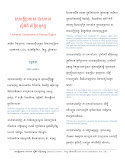











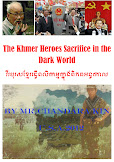


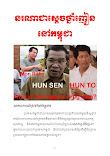


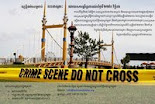



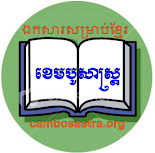

14 comments:
Si jamais je pouvais vous détester pour avoir détruit notre mère patrie!!!
Passer-By
I praise Sihanouk's good work, I also
am disapprove his bad attitude, but
I never see or heard about the worst
Khmer leader as Hun Sen who are completely destroying Cambodia by being the Viet's dog.
i am so glad and cheerful if Hun Sen died.
អាហ៊ុន សែន...កណ្ដួយម៉ែវា!
អាមេភេរវករ!...អាតៃហោង!
គឺអាចុយម្រាយឯង+អាយួនយៀកកុងហ្នឹងហើយ
ដែលសម្លាប់ខ្មែរវាល់លាននាក់។
_____________________________________
មិនមែន NORODOM SIHANOUK & POL POT ទេ!
កម្រមានខ្មែរស្នេហាជាតិដូចរូបលោក 9:23 PM
ណាស់ដែលក្លាហាន ហ៊ានប្រកាសរឿងពិតរបស់
ជនរងគ្រោះខ្មែរជិត២លាននាក់។គឺពិតជាស្នាដៃ
របស់អាបនបិសាចយួនហាណូយជាឃាតករនិង
ខ្ញុំកញ្ជះវា។
សូមជូននូវការកោតសរសើរដ៏ខ្ពង់ខ្ពស់ពីរូបខ្ញុំបាទ
កូនខ្មែរមួយរូប និងសូមអរគុណចំពោះសេចក្តីក្លា
ហានដ៏ចម្លែករបស់លោកដើម្បីប្រទេសជាតិពិត៕
I am glad this MONSTER Ex-Useles King just die.
This is the best day for my life. I have two 3 families died because of this idiot King and his monron families.
Bravo Bravo
The evil king just die. 3 millions ghosts will come to hunt him.
This is the best day for Khmer people to celebrate that the evil just die.
Burn his body over there (China). Don't bring back to Cambodia. He was a Traitor to Khmer people. The Khmer people have suffered enough by him. He did not respect even his own mother. He was an evil king . He should be alive until he can serve his punishement in the Khmer Rouge trail. Please don't forget he was the person who killed Lok Protean Sam Rainsy's father.
Pang Sokheoun, Secretary-General of SRP in Sweden.កុលបុត្រមហានគរខ្មែរ
I'm so happy this Cambodian killer is gone. Next it will be ah Hun Sen.
ធម្មជាតិបង្កើតយើង ហើយវាបំផ្លាញយើងទៅវិញ
ទាំងអស់គ្នាមិនអាចគេចផុតក្រញាំដៃរបស់ធម្មជាតិ
បានឡើយគ្រាន់តែយូរនិងឆាប់ប៉ុណ្ណោះ ជួនកាល
ស្អែកស្លាប់ក៏មិនអាចដឹងមុន៕
ខ្មែរអស់ស្រុកហើយ!..ទៅជា ÑÂM̀B́ƠĐỈÂហើយ!
ហ្នឹង!នៅតែមិនទាន់ដឹងខ្លួនទៀត។
__________________________________
ក៏ព្រោះតែខ្មែរចាញ់កលល្បិចយុទ្ធសាស្ត្រសត្រូវ(បំបែកបំបាក់ខ្មែរ)របស់
អាយួនយៀកកុងនិងអាហ៊ុន សែន(CPP)ពេលនេះ....ខ្មែរខំបៀមអាចម៍ព្រួសដាក់គ្នា!...ព្រួសអាចម៍ដាក់គ្នា....ដល់ណាទៀត?
ពួកវាអរណាស់!
__________________________________
អ្នកសម្លាប់ខ្មែរវាល់លាននាក់គឺអាយួនយៀកកុង,
និងអាហ៊ុន សែន អាមេអបគមន៍!
__________________________________
មិនមែន NORODOM SIHANOUK & POL POT ទេ!
Sihanouk could never script a happy and reasonably safe ending for Cambodia because he is not and never willing to risk his own benefits for Cambodia so all of his decisions that adversely affected Cambodia were made with his interests first and Cambodia and her people second or third.
Joining the Khmer Rouges, his former enemies and taking the side of the North Vietnamese with hope that they eventually would spare his Kingdom by calling on the peasants to fight the Khmer Republic was indeed a decision that had nothing to do with protecting and saving Cambodia, but rather a decision with hope to return himself back to power even though a shared one with the devils! This decision shows how far Sihanouk was willing to put the interests of Cambodia and her people behind those of his.
True love for a nation and her people of a great leader should supersede those of himself and his family; otherwise, the great leader is no different from any ordinary human being who automatically and usually makes decisions to defend only his own interests.
Cambodia, caught between the communists and the free world in the cold war of the 60s and 70s and facing with Vietnam's undying desire and plan to subjugate her, could only survive the great tragedy she suffered did unity among Cambodians exist and Sihanouk be willing to put his interests far behind those of Cambodia and her people. Unfortunately such two critical ingredients had not existed in the Cambodian struggle for survival amid the second and third wars of Indochina.
The Cambodians are the unfortunate people who seem cursed to always give credits to their incompetent and corrupt leaders even though they should have received shame and scold for the bad decisions and actions they have made and done respectively!
Pissed Off
Correction:
"...True love for a nation and her people of a great leader should supersede that of himself and his family;..."
Pissed Off
He couldn't script a happy ending for Cambodia, but Vietnam did. Today, Cambodia is a stable, peaceful, economically successful country, with a happy population, it even comes with its own colorful ruling elites, all thanks to Vietnam. So he can RIP.
Lots of Good information in your post, I favorited your blog post
so I can visit again in the future, Thanks.Tours to Cambodia
Post a Comment